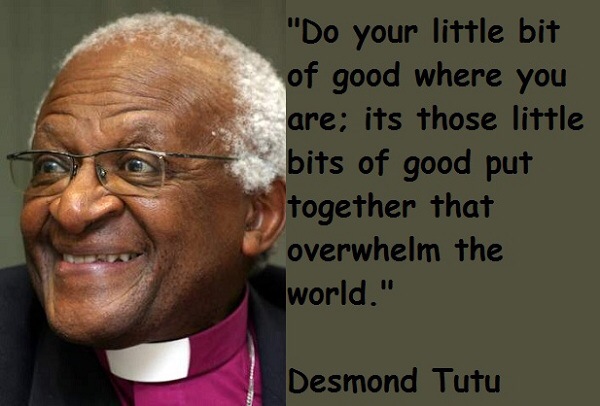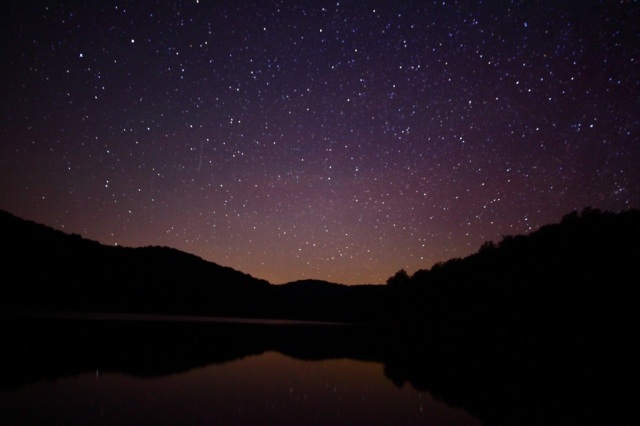St. Paul begins his first letter to the house churches of Corinth with a bang. Apparently there was significant tension, infighting, and conflict between church members. Paul, in his typical blunt style, tells them they are acting like babies… spiritual babies that need to grow up. He says, “Brothers and sisters, I could not speak to you as spiritual people, but rather as people of the flesh, as infants in Christ. I fed you with milk, not solid food, for you were not ready for solid food. Even now you are still not ready.”
The implications of Paul’s words are significant. This may seem obvious, but Paul is saying you can be a physically grown adult and still be spiritual young. Outwardly we may be physically strong and attractive, our achievements enviable, and our bank accounts full… but still remain spiritually young. But Paul is writing them to encourage them to grow and tend to this unseen part of life.
This is the inner journey that drives all the other parts of our lives. If we tend to this unseen part of our lives, we can experience deep inner peace, transformational intimacy with God, and become powerful conduits of divine love in the world.
So if this inner spiritual journey is so critical, how do we grow? This is a question that church mothers and fathers have been wrestling with and exploring for thousands of years. In the early 7th century, John Climacus, wrote The Ladder of Divine Ascent where he described the 30 stages of spiritual growth. He says a person’s journey culminates into a life of love. We don’t have quite enough time to review John’s 30 stages today but fortunately there are other more streamlined systems. In the 16th century St. John of the Cross described 4 distinct stages of growth. Modern authors M. Scott Peck and Brian McLaren also present 4 stage schemas. Franciscan Friar Richard Rohr wrote a wonderful 9 stage map of spiritual growth.
I like the metaphor of a spiritual map to describe growth. A ladder seems so linear but a map opens us up to all sorts of possibilities. When I prepare to lead a wilderness retreat, the first thing I do is get out detailed maps of the mountain range. I lay them out on the table and explore all the potential routes. I can see the rivers and all the mountain peaks, the places to shelter and the places to find water. Maps can help us know where to go and they open our eyes to all that’s out there. When I look at those maps, I don’t see paper and ink, I see adventures and lots of new possibilities.
Spiritual growth maps do the same thing. Without these maps, we can begin to think that what we’re experiencing now is all there is for us. We limit ourselves.
I recently learned that that one of the most valued and sought after saltwater aquarium fish are baby sharks. This is because if you place a baby shark in a small (100 gallon) aquarium it will stay small, usually less than a foot long. The same shark in the ocean may be 12 feet long! The shark’s growth is literally defined by the limitations of its environment. The same is true for us spiritually. Spiritual maps help us see how big the world really is. They call us out of the aquarium and into the ocean. We were designed for the wide open space of the ocean yet many of us are living in aquarium Christianity! In Christ, we have the wide open space to become our true, full selves. And spiritual maps show us how big the world is. So let’s break out the map, put it out on the table to explore the possibilities. Because every one of us, whether 9 or 90, is called further out on the trail and into a deeper, transformational experience of God.
I synthesized the spiritual journey into 5 stages leaning heavily on the works of Franciscan Friar Richard Rohr, Brian McLaren, and John of the Cross. Each stage is like a mountain on the map for us to explore. The five stages are Simplicity, Insight, Shadow, Surrender, and Unity.
The danger in talking about stages is that the ego wants to view the stages as a hierarchy. We want to first rank ourselves and then rank the person sitting next to us. But this is not a race. It is an organic process where God leads us each deeper into his love. Each stage is necessary and valuable and we revisit them again and again throughout our lives.
The stages are also cumulative. It’s like the rings of a tree; each stage builds on the previous one. At the same time, the journey is not linear where we simply grow in a clean straight line. It is fluid and much more like an ascending spiral where we revisit the earlier stages again and again but each time with greater depth.
The first stage/mountain is Simplicity.
In this stage, your identity is your body and your outward behavior. The focus is being right and the major belief is that all truth is knowable and there are easy answers to every question. They like pastors, politicians, and other leaders who are confident, uncompromising, and know all the answers. They tend to dislike unsure people who say, “I don’t know.”
Folks in this stage are binary and dualistic in thinking… “It is us versus them.” The strengths are that people at this stage are highly committed and willing to sacrifice for the cause. Weaknesses include being judgmental, intolerant, and arrogant. The folks Paul was writing to in Corinth are at this stage.
So how do people grow from one stage to another? Disruption and doubt. St. Paul recognizes they are stuck in this limited thinking and so writes them a disruptive letter. He wants to disrupt their existing world-views and create the space for them to open up to a new way of thinking. You begin to doubt that things are as simple and clear as you assumed. The transition from one stage to another is usually scary. It’s like swinging on a trapeze. You are there, grabbing onto the trapeze, swinging comfortably when all of a sudden, a new trapeze swings towards you out of the blue. If you are disrupted enough, you are willing to take the risk. You let go of your old bar and reach towards the new. You experience that terrifying moment of inbetweeness where you no longer believe your old way of thinking but things are unclear and your new system is not defined. But finally, your hands close around the next trapeze and you discover the next mountain.
The second stage/mountain is Insight.
At this stage, the easy answers no longer work. Your eyes are opened to the reality that things are far more complex than they used to believe. You begin to dislike people who are too dogmatic. You now identify yourself as your thoughts and their feelings. You quote authors, like learning, and have become quite introspective.
Richard Rohr believes most of educated America and Europe are stalled at this stage. He says folks at this stage “are good people; they are easy to make friends with. They are dialogical and conversational. But do not ask them to go very far beyond their own comfort zone or their own egocentricity.” The blind spot is the belief that knowledge equals change. At this point, education is often a substitute for actual transformation.
I now have teenagers but when Beth and I first had kids, those were some particularly tough years. I was working in a church full time, in seminary, and figuring out this whole parenting thing. We were both exhausted all the time and had little energy or grace for each other. I would get home after a long day of ministry and study and into the chaos of a home with multiple kids under five. Honestly, most of our interactions were full of tension and argument. Some good friends recommended that we go and talk to a counselor. I was reluctant but finally agreed to go. I genuinely believed I had a good handle on my issues. I spent the first couple of counseling sessions doing an excellent job of diagnosing myself. I wanted to make it clear to everyone that I was smarter than the counselor and tried to stay one step ahead of every question she would ask… beating her to the punch on any issue she asked me about. After the third session, she interrupted me and said, “Greg, you do an excellent job of diagnosing your issues but you don’t do anything about it. You have a lot of knowledge but I see no real transformation or change in your life.” And it pierced me. It was absolutely true. I could write dissertations on childhood issues and the love of God but it made no real impact in my life. There was a disconnect between my head and my heart.
The counselor’s words were the straw that broke the camel’s back for me. Her words, along with the stress in my marriage, the chaos of parenting, and the pressures of ministry and studies propelled me to make a change. To stop living in my head and take an honest look at myself.
And that is what it takes to move from stage two to stage three. It takes great love and great suffering. Unless there is humiliation and struggle that strips us of our facades and our head-based identity, we won’t move on to the next stage.
The third stage/mountain is Shadow.
The focus in this stage is to see through your illusions to reality. In this stage you ask hard questions and try to be ruthlessly honest. The major belief is that nothing is certain anymore… everything seems up in the air. People in the shadow stage tend to dislike people in Stage 1 and 2 viewing them as shallow and superficial. Richard Rohr says of this stage that “Here you meet yourself in your raw, unvarnished, uncivilized state, and you start dealing very realistically with your own shadow self, phoniness, mixed motives, and actual unlovingness.”
The work of Stage three can go on for quite a long time and it can be lonely and painful. It is easy in this stage to fall into cynicism and elitism. This is the dark night of the soul. You either drift away from faith in cynicism or bring your unvarnished angst and honest doubt to God… like Jacob wrestling the angel and refusing to let go.
It is often a time where the deepest questions of our hearts surface… “God you tell me to trust you but how can I trust a God that allows such evil and suffering in the world? How can I trust a God that would allow that to happen to my friend or allow this to happen to me when I was young?”
If you do not bring your honest struggles to God and have someone believing in you and loving you, you will stall in this stage and even regress.
As painful as this stage is, it tills up the soil of the heart to receive the unconditional love of God in powerful and transformational ways. The dark night of the soul is the only doorway to deep freedom. For those that remain open, they discover the next spiritual mountain.
The fourth stage/mountain is Surrender.
After the technicolor struggle of stage three, you embrace the reality that you are empty and powerless. There is a surrender of self into God’s hands at this stage that was impossible before. You have learned your powerlessness and realize all you can do is wait and ask and trust.
It is in this “waiting room” that you learn real grace and compassion. You learn patience and what it means to forgive yourself and so, for the first time, truly forgive others. You learn what it means to be gentle with yourself the way God is gentle with you. This is why John of the Cross described this stage as “luminous darkness.”
If you are willing to keep your hands open, and grow comfortable with the constant feeling of uncomfortableness, you will move on to stage five.
The fifth mountain/stage is Unity.
As you experience your powerlessness and reach a place of deep surrender, you discover the presence of God all around and within. You experience that you are intimately and inseparably in union with God. This is what St. Paul meant when he said: “I live no longer, not I, but I live in Christ, and Christ lives in me” (Galatians 2:20).
This is your true self emerging, like a butterfly from a chrysalis. Joy and contentment flows from this inner connection with God and are available no matter the circumstances of life. You realize this is what you were made for and heaven is now. I personally don’t know anyone who functions in this stage every minute of the day but we grow more and more in simply abiding here.
In this stage, the major belief is that there are a few basic absolute truths and much mystery. Pastors and leaders are viewed as regular folks just doing their best. You live each day as a conduit of divine love with everyone you meet. You see the value in all the stages of growth and have compassion on folks in each stage.
Brian McLaren writes, “That this stage is the last stage doesn’t suggest that one lives happily ever after! At this stage of integration, one now faces all the weaknesses of the previous stages. Whenever one enters a new context, a new career, a new religion, a new social network, he or she may well recapitulate the stages repeatedly. After all, humility, like maturity, is obviously not a destination, but rather a journey in itself.”
So those are the five stages of spiritual growth or 5 mountains on the map. Simplicity, Insight, Shadow, Surrender, and Unity. God is with us, right now, as guide and teacher and loving healer, inviting us to a life of adventure on the trapeze… to always keep our hearts open to the next trapeze. I want to close with a quote from author and minister Mike Yaconelli that brought me to tears. He who wrote these words just a few months before he passed away in a car accident.
“So here I stand, looking at the ground, smelling the faint fragrance of God. Never once did it occur to me that when I found God’s trail again, it would ruin my life forever – for once you feel the breath of God on your skin, you can never turn back, you can never settle for what was, you can only move on recklessly, with abandon, your heart filled with fear, your ears ringing with the constant whisper, ‘Fear not.’ Once you find where the trail is, you are faced with a sobering truth – in order to go on, you must let go of what brought you here. You cannot go on without turning your back on what brought you to this place. It is like swinging on the trapeze. Once you have gained the courage to swing, you never want to let go… and then, without warning, you look up and see another trapeze swinging towards you, and you realize you are being asked to let go and grab the other trapeze. You have to release your grip. You have to reach out. You have to experience the glorious terror of inbetweeness as you disconnect from one and reach for the other. I haven’t reached the other bar yet. I am somewhere in between, but I can tell you this: my heart is filled with exhilaration, an anxious anticipation that just as I get to the other bar, I will not grasp it, but instead be grasped by the hand of Jesus. I can hardly wait.”




